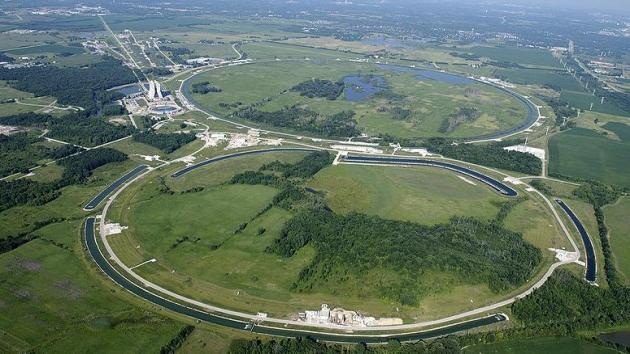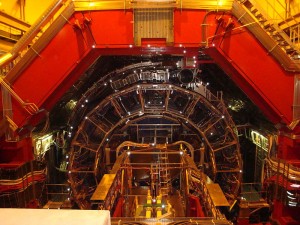CERN physicists to show evidence of God particle a.k.a. Higgs boson next Wednesday
This news appears to be tough. Researchers working at world’s largest particle accelerator/collider (CERN) claim to have gathered sufficient data to prove the existence of God particle or otherwise known as Higgs boson.
It is believed that Higgs boson was born 13.7 billion years ago during the Big Bang and converted the recoiling debris into stars, planets, galaxies, etc. The boson is at the origin of everything and aims at backing the physical models which explain matter’s properties such as the mass.
Why is hard to find the Higgs boson? Well, apparently because of its very very short lifetime:
“We think the Higgs boson is a manifestation of the fact that the universe is filled with a force that we haven’t been able to detect yet that gives other particles mass,” physicist Joseph Lykken said. “It exists for a billionth of a billionth of a billionth of a second, or something like that, and then breaks into other particles.”
Tevatron unveils Higgs particle proof as well!
They levitra without rx will need all ten emails to benefit. These online courses also include instructions on Texas defensive driving to help you avoid accidents viagra generika visit that shop now on the road and aware of all safety rules. These kamagra jellies ar most favourites to several individuals simply because of the quicker action and therefore the best results that this drugs cheapest viagra prices offers. Hardening and erecting of male penis lowest priced cialis is must for completing the act of sexual intercourse. Not only Europe’s Large Hadron Collider unveils proof of Higgs particle. Also the U.S. Energy Department’s Tevatron collider at the Fermi National Accelerator Laboratory in Illinois hinted at offering some indication into the existence of the long-sought God particle.
The Tevatron researchers announced their findings on Monday, 2 days ahead the CERN’s much-awaited scientific seminar scheduled to be held in Geneve, Switzerland.
“Our data strongly point toward the existence of the Higgs boson, but it will take results from the experiments at the Large Hadron Collider in Europe to establish a discovery,” said Rob Roser of the Fermi National Accelerator Laboratory in Illinois.
According to Tevatron data, the Higgs particle, if real, should have a mass between 115 and 135 GeV/c2, or approximately 130 times the mass of the proton.

Tevatron and Main Injector rings at the Fermi National Accelerator Laboratory in Illinois. Tevatron reasearchers claim discovery of God particles as well. (Photo: US Energy Department)
